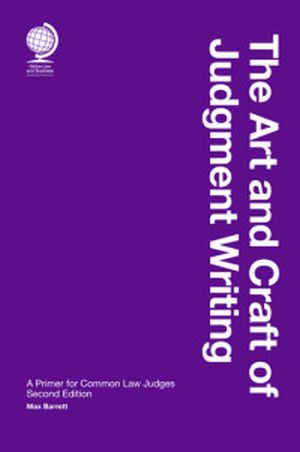
Reviews from the previous edition:
"This is a marvellous book, full of wisdom and literary references. It is written by a leading Irish judge and brings with it an international flavour, featuring judgments from common law jurisdictions across the world." - David Pickup, Law Society Gazette"This is an enjoyable and instructive book for all who are interested in how law is made." - Joshua Rozenberg
"I very much enjoyed the opportunity this book gave me for dipping in and out of a wide range of judgments across a wide span of geography and time, absorbing their literary qualities and individual styles…I found myself turning down the corners of pages so I could better find again some little quote from a judgment that I rather liked, and which had current potency or particular relevance to my field of work or areas of interest… I thought this was an excellent book and recommend it to other legal professionals, not just judges." - Lucy Reed KC
In this second edition of The Art and Craft of Judgment Writing, Max Barrett, an experienced and practising judge working in Ireland, will not only enhance your judgment writing skills but elevate them to a new level of clarity, precision and style. With the first edition already used by judges around the globe, this new edition goes beyond the fundamentals to dive into cutting-edge areas of interest that today’s judges need to navigate.
Subjects new to the second edition:
With more real-world examples from case law, a 'key learnings and question' section with each chapter to help judges turn theory into practice and an entirely new exploration of what great fiction writers have taught about writing, The Art and Craft of Judgment Writing is not just a book: it's a roadmap to becoming a better writer and a more effective judge.